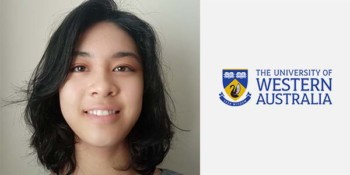Jhermayne Ubalde is a New Colombo Plan Mobility Grant recipient from The University of Western Australia. Jhermayne undertook the Virtual Public Health Study Tour in July 2022.
Q: Why did you decide to undertake this virtual program?
I was interested in health in South East Asia, especially as it might be part of my future career as someone studying medicine.
Q: Did you receive a New Colombo Plan Mobility Grant? Why do you think the NCP is an important initiative?
Yes, I did receive an NCP grant. It is so important because it goes a long way into building the relationship between Australia and Asian countries in the Indo-Pacific. Without the grant, I probably wouldn’t have attended this program. I would never have been able to work with Indonesian students and gain insight into public health from their perspective.
Q: What did you find to be the most rewarding part of this virtual program?
I found the community aspect very rewarding. There were plenty of opportunities for group work and to discuss issues with Indonesian students. The smaller group size added to this as well.
Q: What did you find to be the most challenging about your experience on the Virtual PHST?
The most challenging part was maintaining concentration throughout the day, as it involved sitting at a desk and looking at a screen for hours. However, the positive parts of the program made up for this.
Q: What public health issues in Indonesia have you become more interested in/aware of as a result of this virtual tour?
I’m much more aware of how the public health system works and how it carries out its activities on a community level through puskesmas and posyandu. I’ve also become more interested in maternal and child health, as well as helping people with HIV.
Q: What was your favourite virtual fieldtrip?
I enjoyed the Kali Code field trip. It was very interesting to see the daily lives of people living in the settlement, as well as learning about how it has developed over time.
Q: Were you able to learn about the Indonesian culture from this virtual program?
Yes! In my own interactions with the Indonesian staff and students, I definitely got a sense of the gotong royong aspect of the culture. I also enjoyed the language, cooking and dance classes which taught me a lot about Indonesian culture.
Q: Why it is important for Australians to learn more about Indonesia and vice a versa?
Indonesia is one of Australia’s closest neighbours. By working together, the two countries could tackle some major public health issues in both countries.
Q: Did you enjoy discussing public health issues with the Indonesian students? If yes, can you describe your experience? What topics did you present on in your groups?
Yes, I greatly enjoyed gaining insight into their perspective – they had a lot to add that couldn’t be learned through lectures. In the first week, my group presented about the Indonesian public health system. In the second week, our topic was neglected tropical diseases.
Q: How do you think the Virtual Public Health Study Tour will influence your future career or studies?
I’ve become more interested in working in public health in some way. In the future, I may try learning Bahasa Indonesia, studying abroad and doing research in Indonesia. The program has made me aware of new options I hadn’t thought about before.
Q: Would you recommend this virtual program to your friends?
Yep definitely.
Q: Favourite Indonesian word/phrase?
Baik-baik saja
Q: Describe your experience of the Virtual PHST in three words:
Inspiring, informative, semangat!


